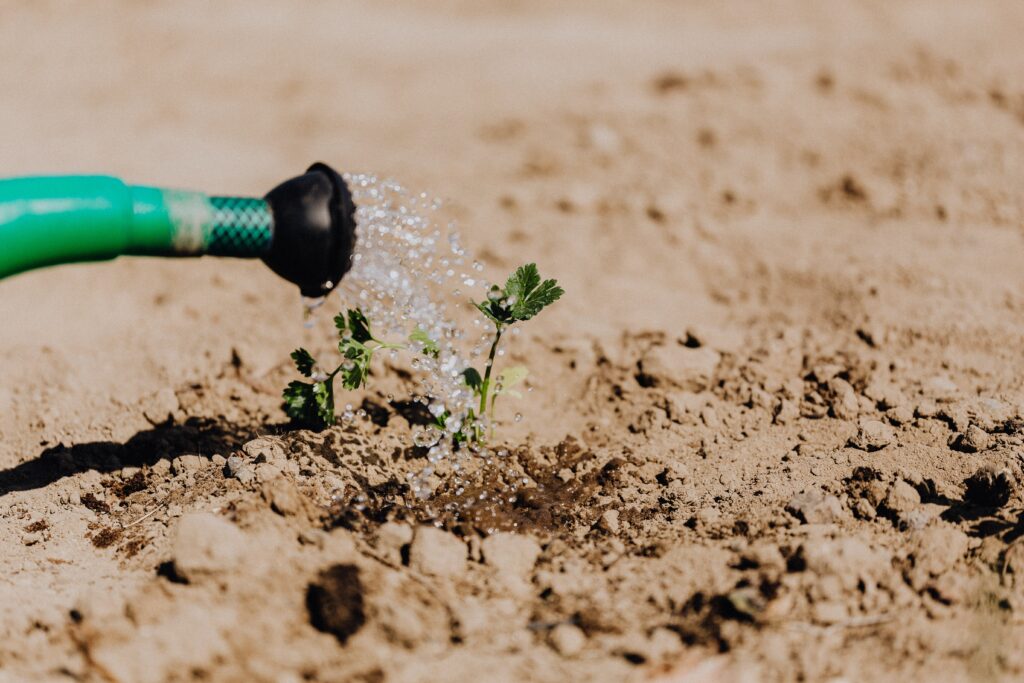
Water supply in Malawi is often unreliable due to frequent power outages and a limited capacity for power generation. Although 67 percent of Malawi’s households have access to drinking water, distribution among districts and between urban and rural areas is uneven. Moreover, only 77% of water points in the country are operational. The remaining water points have stopped working due to factors like aging infrastructure, catchment deterioration, neglect, a lack of spare parts, and inadequate community-based water management. Climate shocks such as drought and floods have exacerbated water and energy shortages. Simultaneously, they are damaging existing hydroelectric infrastructure and contaminating water reserves in the region.
Founded by 33-year-old Ulaya Mwale, a winner of the 2022 Youth Adapt Challenge, Mpasta Engineering strives to contribute towards the development of modern and sustainable technologies in the areas of water supply, irrigation, and energy supply in Malawi. Through their solar-powered water supply systems, they are providing potable water to about 14,302 people. The enterprise is striving to become a flag carrier in the promotion of sustainable water, energy, and irrigation technologies for both local and international clients.
In an interview with GCA, the founder of Mpasta Engineering, Ulaya Mwale, shared how winning the YouthADAPT challenge helped him expand the impact of his business and gain visibility in the industry.
Interview
What inspired you to start your enterprise?
Ulaya Mwale: The inspiration for our enterprise came from the deteriorating quality of water supplied by Afridev Deep Well Hand Pumps, a common water source in Malawi. Over the past decade, corrosion and rust have affected these pumps, compromising water quality. Furthermore, water supply systems in Malawi do not reach all areas, leaving approximately one-third of the population without access. Climate-related issues like floods and droughts have damaged infrastructure, making water pumps non-functional during certain periods. This prompted us to find a sustainable solution for water supply and irrigation.
What solutions has your company developed, and how does it contribute to climate adaptation in Malawi?
Ulaya Mwale: Mpasta Engineering specializes in providing renewable energy options, primarily for water pumping. Our solutions bring quality and quantity to communities, making them more resilient to climate change. The company’s unique approach uses borehole drilling not only as a business but as a means to help communities adapt to climate change. For example, we’ve adapted to floods and droughts by drilling deeper for water extraction. Furthermore, our solar-powered water supply and treatment systems ensure that communities have access to clean and safe water, even in the face of climate shocks. Unlike other programs, where they just install the infrastructure, we also maintain the system by using technologies like remote monitoring to capture data and ensure quality over a long period of time. Finally, our sustainable technologies are reducing the cost of water and thus making it more affordable for communities.
The climate is something we cannot control in Malawi, and thus we need to find technologies that adapt to the change. This is why we have transitioned from providing a product to offering water as a service, ensuring long-term sustainability.
What challenges have you faced while implementing and scaling up your solutions?
Ulaya Mwale: Gathering accurate data is a significant challenge due to rapid fluctuations as a result of climate change. We’ve faced difficulties in obtaining specific parameters and data, and materials must be carefully chosen to prevent rust. It is important to come up with a design that can keep up with this rapid change. Our approach stands out because we incorporate these challenges into our designs and ensure flexibility in the face of changing conditions. Some stakeholders question the need to collect so much data, but we do this to obtain the information that will help us predict more accurate trends for the future. However, floods are unpredictable, so we always assume that anything can happen.
In the past, we have collected data physically, but now we are going to start collecting data remotely, which is easier. The problem is getting the data we need from agencies and global institutions. Our projects require very specific parameters, such as wind speed at a certain height, which becomes difficult to measure. We are currently trying to get in touch with these agencies, being particularly interested in mid-data.
How has the YouthADAPT program supported your youth-led enterprise?
Ulaya Mwale: The YouthADAPT program has been life-changing for us. It has not only provided recognition but also garnered the attention of the Malawian government and potential partners. This recognition has led to increased visibility through media and other channels.
We wanted to make this grant the last grant that we need as a company, investing the money in something that generates more income so that we can maximize growth for the enterprise. The program’s resources were mainly invested in data collection, which is vital for monitoring and adapting to changing climate conditions, and borehole drilling equipment. We focused on groundwater, using solar-powered systems for pumping to reduce the need for frequent monitoring. The equipment we purchased also enabled us to perform water quality testing. We first invested in borehole drilling equipment, which brings greater profits, and used the money generated through this investment to buy our water quality testing lab.
What are your future ambitions for Mpasta Engineering?
Ulaya Mwale: At the moment, we operate in Malawi, but we are looking to expand to Zambia and Mozambique. We are in the process of discussing engagement opportunities with government officials and strategizing how and where we can offer our services in our neighboring countries. The goal is to provide sustainable water services powered by sustainable energy to 4 million Malawians, 4 million Mozambicans, and 2 million Zambians by the year 2030 through innovative, climate-smart, and environmentally friendly technologies at an affordable tariff. This will contribute to building climate-resilient communities that have access to water at an affordable price.
Do you believe climate adaptation is a profitable business opportunity? What advice would you give to other young African entrepreneurs who want to start in this field?
Ulaya Mwale: Climate adaptation can definitely be profitable. Our business is a testament to the enormous opportunities in this field. As we address pressing climate-related issues, our solutions provide an essential service. There’s a growing need for such systems in many African countries, making it a promising avenue for young entrepreneurs. However, changing established practices can be challenging for some. When I tell investors much older than me that there is an opportunity in a new way of doing things, they find it difficult to understand. It is not easy to change the way someone has been operating for the last 30 years. This is why most people involved in climate adaptation initiatives are young.
What would I advise others?
To succeed in the face of climate change, bring new solutions tailored to the challenges. The opportunities are vast, and young entrepreneurs can make a significant impact. Climate adaptation initiatives are gaining momentum, and being at the forefront of this movement can lead to profitable and impactful businesses. Accessing financing for innovations can be challenging, as investors often have stringent requirements. However, recognition and media visibility can be more valuable than monetary support. Overcoming these barriers is crucial, given the increasing need for climate adaptation solutions.


